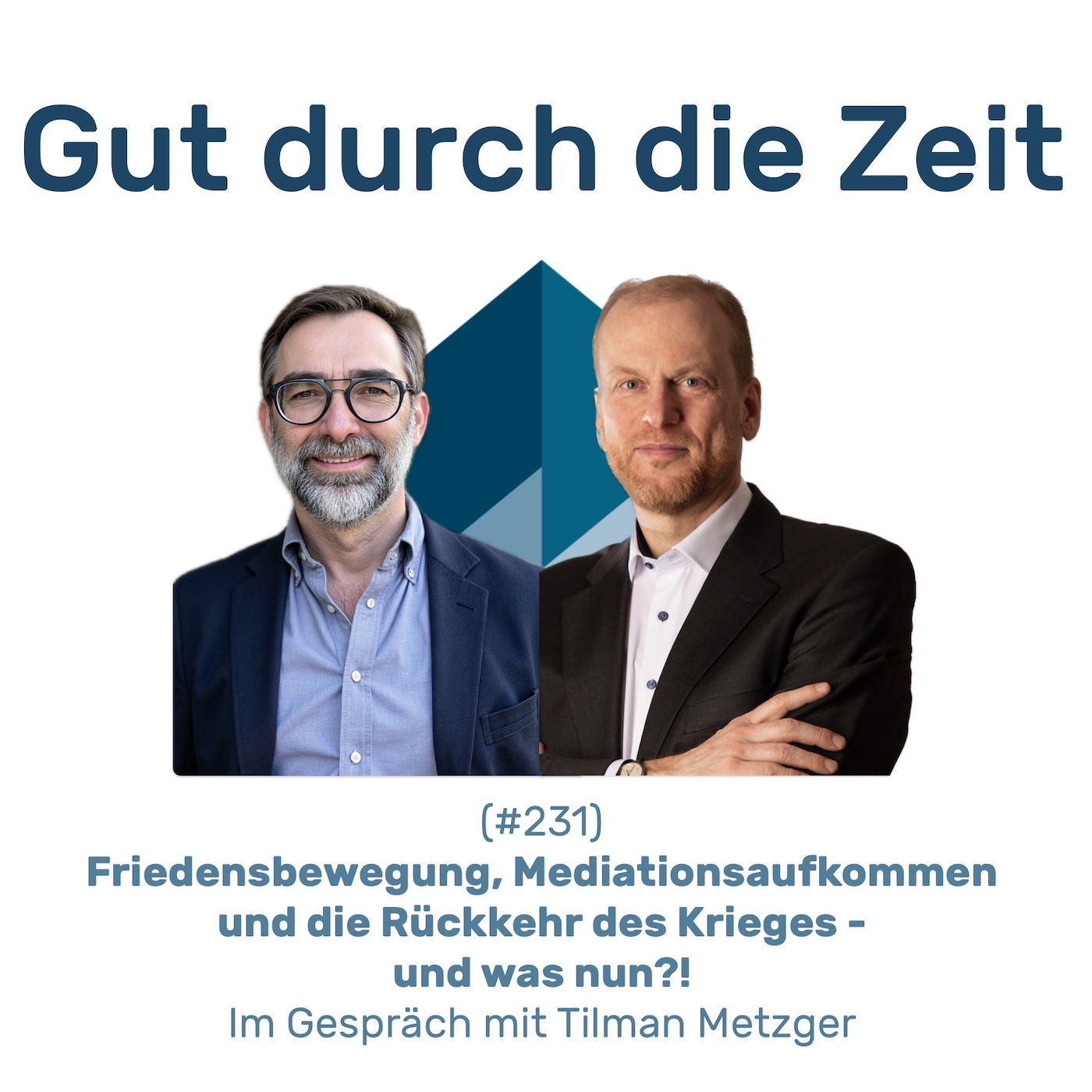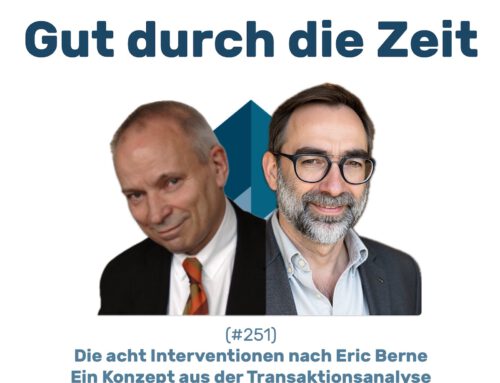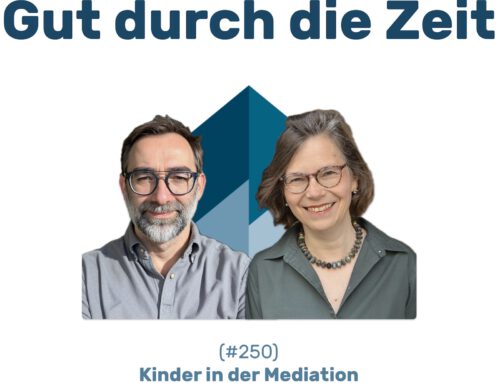INKOVEMA Podcast „Well through time“
#231 GddZ
Peace movement, the rise of mediation and the return of war – and now what?
What does the return of war in Europe mean for the profession of mediation?
In conversation with Tilman Metzger
Lawyer, mediator of the first hour in Germany and passionate clarification helper; trainer for mediation and clarification help; co-founder of the Federal Association of Mediation; specialises in conflict management in organisations: Conflict management in organisations, associated with Sascha in the mediator pool of the Fraunhofer Gesellschaft.
Small series: Socio-political conflicts
Contents
Chapter:
Summary of content
In this episode of the podcast „Gut durch die Zeit“ I invite experienced mediator Tilman Metzger to talk about how mediators see themselves. We will look at how the challenges of conflict, particularly in the context of war, influence our understanding and approach to mediation. Tilman brings his extensive experience of peace mediation gained in various crisis areas since the 1980s and shares with us his insights on the transformation of the mediation profession over the years.
We begin with a discussion of Tilman's early experiences in the peace movement and his first steps in mediation during the Northern Ireland conflict. These experiences not only helped him to develop his skills as a mediator, but also to gain a deep understanding of the dynamics of conflict and the need for non-violent conflict transformation. Tilman explains how, in times of crisis, he realised that mediation is not just a professional tool, but also a personal calling.
A central topic of our conversation is the changing nature of mediation. Tilman reflects on developments from the 1980s to the present day and the challenges mediators face when it comes to maintaining their own self-image and ethical principles. We talk about the Mediation Act in Germany and its impact on professional practice. Tilman emphasises that despite the legal framework, the fundamental principle that mediators must act responsibly and remain orientated must not be lost.
Another important aspect is the influence of current geopolitical events, especially the Ukraine conflict, on mediators' sense of self-evidence. Tilman and I discuss the moral dilemmas that arise when it comes to acting as mediators in conflicts where misbehaviour and aggression are evident. We question the role of mediators in an environment where military confrontations and the need for defence strategies are becoming ever more present.
The discussion leads us to the question of whether and how the German Mediation Association should get involved in political debates without jeopardising the neutrality and integrity of mediation. We consider how important it is for mediators to draw a clear line between their personal opinions and their professional role in order to respect the diverse perspectives and needs of their clients.
In conclusion, we emphasise the need to keep the dialogue open within the mediation community and to accept different opinions and experiences in order to develop the profession. This episode offers valuable insights into the complex challenges and ethical considerations facing mediators today and invites reflection on one's own practice.





Leave A Comment